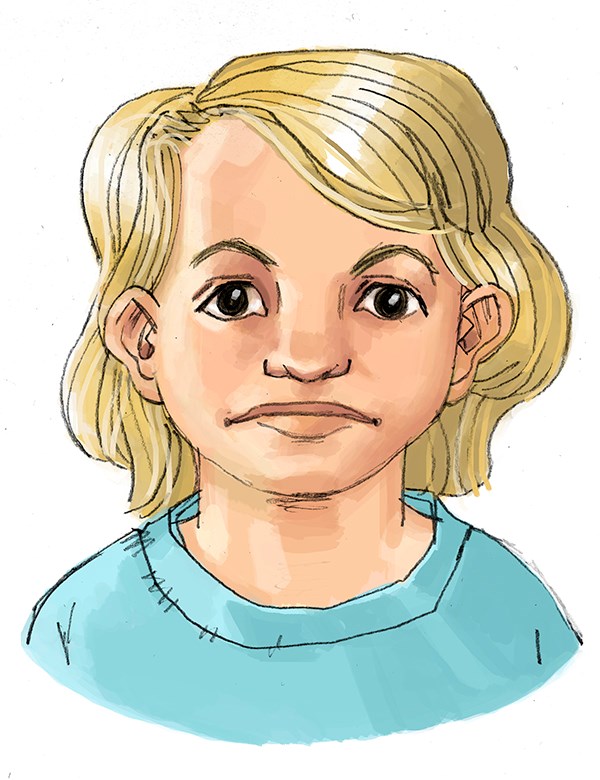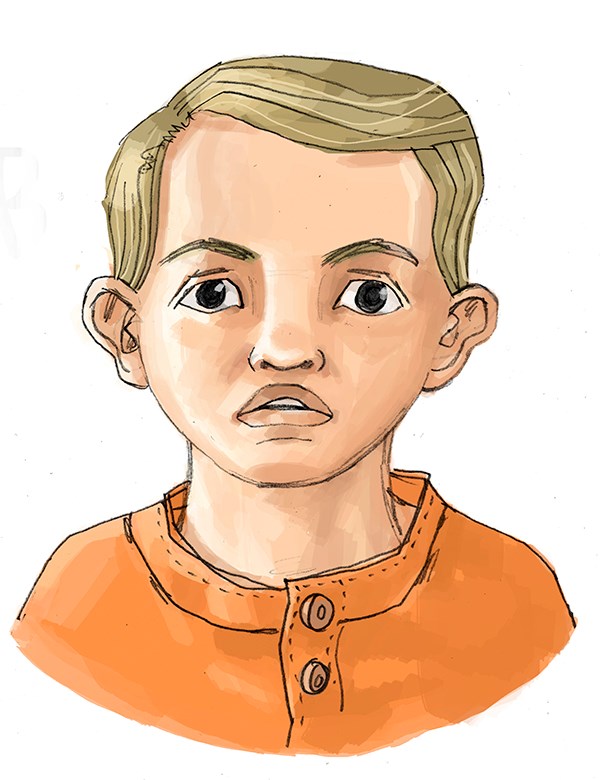Wolf-Hirschhorn syndrome
Codes
ICD-10: Q93.3
ORPHA: 280
General information
Estimated occurrence
2:100,000 live births.Cause
The monosomy 4p syndrome is caused by a loss (deletion) of chromosome material on the short arm of chromosome 4. It can also be caused by mosaicism, i.e. a mix of normal cells and cells with monosomy 4p. In some cases, a ring chromosome 4 has formed. What has happened in these cases is that chromosome 4 has broken at both ends and then re-attached itself to form a ring. A further cause may be that one of the parents has a reconstruction of his/her chromosomes, a so called translocation, which means that there has been an exchange of chromosome material between two chromosomes.General symptoms
Newborn babies with monosomy 4p weigh slightly less than what is normal. Muscle weakness (hypotonia) is common. The palate is sometimes cleft. Everyone with this diagnosis suffers from a developmental disability which is most often severe. Eye abnormalities may be present. Abnormalities of the heart, often uncomplicated, are present in 50% of the children; 40% have hearing defects. It is common for these children to be short. Most suffer from epilepsy which is often difficult to treat. Some children are unable to straighten out their fingers, which are sometimes bent to the side, and large birth marks can be present. There is an increased risk of infection, especially stomach and bowel infections.Synonyms
Monosomy 4p sydrome, 4p deletion syndrome, Wolf’s syndromeImages
Characteristic facial features in Wolf-Hirschhorns syndrome:
Small head. High forehead. Arched eyebrows. Down-slanting eyes. Widely set eyes (hypertelorism). Short upper lip (short philtrum). Downturned corners of the mouth. Small lower jaw.


Orofacial/odontological symptoms
Characteristic facial features are associated with the diagnosis. Muscle weakness and a possible cleft palate often make it difficult for infants to suckle. It is common for the palate to be high, and the jaw and teeth to be small. Speech and communication difficulties are common, as are eating difficulties and drooling.Advice on follow-up and treatment
- If there is a cleft palate, a specialist team is responsible for follow-up and treatment.
- It is important for people with Wolf-Hirschhorn syndrome to have contact with dental care early on for strengthened preventive care and oral health information.
- Oral motor training and stimulation is often urgently needed in cases with eating difficulties.
- There is often cause for speech, language and communication training.
- Contact with a physician is recommended before dental treatment for medical conditions, such as heart defects.
Sources
Updated: 2021-03-23 08:37






